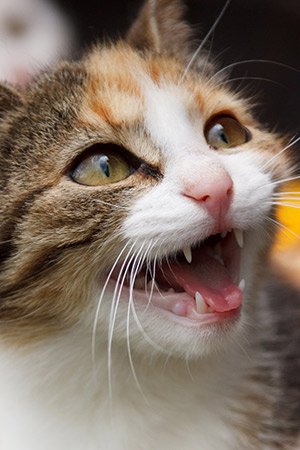 Anti-social antics and the reasons behind them
Anti-social antics and the reasons behind them
Cats are wonderful, curious and independent creatures and make fabulous companions. Nevertheless, most cat owners will have experienced a frustrating feline situation at one time or another – you know the kind of thing; going to the loo where they shouldn’t, scratching, hissing, clawing. While this can be annoying, it’s important to understand the reasons behind these types of behaviour. Often, what we humans consider bad behaviour can be anything from the cat feeling scared, bored, territorial or a plea for attention.
Don’t go there!
It’s not helpful or pleasing when your cat decides to pee on your carpet or rug. It’s important, however, to recognise the difference between urination and marking. Urination is a result of the cat’s bladder being full and the need to empty it, while spraying is a very specific action to mark territory and can be influenced by stress. One way to tell the difference is to note that cats typically squat to pee and stand to spray. If your cat is house-trained and begins to urinate elsewhere in the home, then this may be a sign of a urinary tract infection, so have he or she checked at the vets. If your cat is spraying, be mindful of new smells coming into the home. If you have visitors who have dogs at home, this new smell could upset your cat, and spraying may occur as a method to reassure itself.
Heavy Petting
A cat that nips and scratches can be problematic, particularly if you have young children or visitors to your home bring young children with them. Cats are adorable and furry, and the desire to pet and stroke them is strong. However, they are not a particularly social species and don’t have a vast array of communication signals to indicate how they are feeling. This means that a bite or a scratch may occur in an apparently random and unprovoked way. One early warning sign is the cat’s tail or ears beginning to twitch. This is the time to stop stroking or petting, as the cat will bare its claws and teeth if unwanted stroking persists. They key to cats is to give them plenty of personal space.
Hissy Fit
It’s rather awkward if a visitor comes over and your cat decides to hiss at them. Generally this is a fearful behaviour and may occur if a visitor like an enthusiastic child, rushes up to them. If your cat doesn’t take flight immediately, it will hiss if it feels cornered. It is better to ask your visitor to ignore your cat, or think about putting your cat in another part of the house for the duration of the visit, to minimise their stress.
While being the owner of any kind of pet can have its difficult moments, there are also plenty of rewarding ones too. Once you get to grips with the behaviour specific to your particular cat, you can look forward to many years (the average lifespan of a moggie is 15+ years) of blissful companionship.

